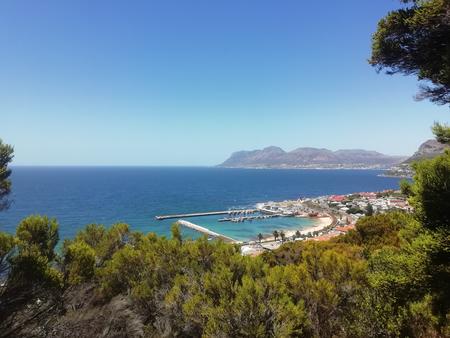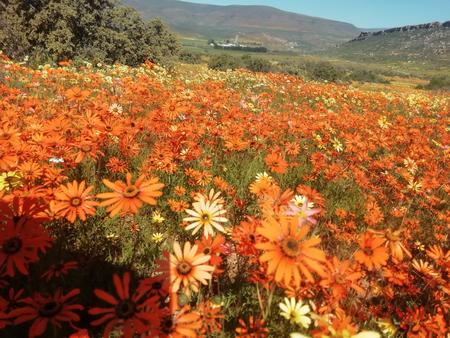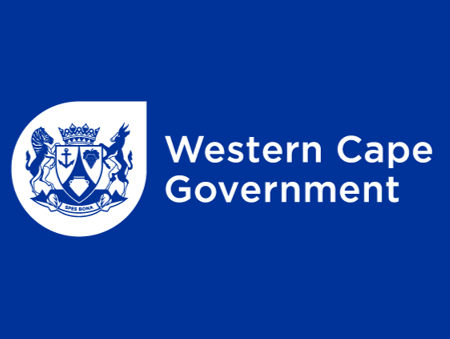Western Cape and just transition
The commitment of the Western Cape Government to a just transition in its climate work is rooted in a recognition of climate change as a pressing human rights issue which has the potential to exacerbate existing human rights infringements and undo achievements made in this area. Notably, the impacts of climate change vary across different groups, rendering certain populations more vulnerable than others. This acknowledgment forms the cornerstone of the Western Cape Climate Change Response Strategy: Vision 2050, a comprehensive blueprint outlining the province's approach to climate change mitigation and adaptation.
Objectives and collaborative approach
In alignment with this perspective, the strategy has incorporated the concept of a just transition as one of its four guiding objectives, with a focus on collaboration across the public sector, private sector and civil society. The early stages of this work will involve developing a shared understanding of the just transition's implications for the Western Cape, the necessary actions and identifying key stakeholders.
Guiding framework and sectors at risk
Guided by the Just Transition Framework for South Africa, which was signed off by the President in July 2022, the Western Cape prioritises sectors and value chains deemed at risk in the transition. The sectors prioritised in the national framework include the coal value chain, the auto value chain, agriculture and tourism. While the first two are not directly part of the Western Cape's economy, they play integral roles across the province. In contrast, agriculture and tourism stand out as pivotal economic sectors within the province.

Just transition definition and components
The definition of the Just Transition in South Africa was crafted through an inclusive and collaborative process involving diverse stakeholder groups beyond government or private sector interests. The comprehensive definition is available in the Just Transition Framework for South Africa, emphasising crucial components such as enhancing quality of life, ensuring decent work, promoting social inclusion and eradicating poverty. Central to this definition is the emphasis on people-centric decision-making and fostering resilience through strategic investments in renewable energy, conservation and resource quality improvements.
Due to South Africa's fossil fuel-heavy electricity network, current just transition efforts are concentrated in the coal regions. In response, the country launched the Just Energy Transition Investment Plan (JET IP) in 2022, a focal point for broader just transition initiatives. The JET IP strategically aims to decarbonise the energy sector, promote green hydrogen adoption and encourage electric and zero-emission vehicles. Beyond economic opportunities, the plan prioritises skills development, recognising the necessity of addressing workforce transitions from coal-based power and the potential impact on dependent communities.
Barriers to implementation
The implementation of the just transition is centered on departing from the conventional business-as-usual approach, often requiring a substantial restructuring of economic systems. Several obstacles impede this process, encompassing financial costs, the repercussions on towns and communities dependent on soon-to-be-affected economic sectors and the inherent challenge of fostering mindset shifts. The crucial shifts in perspective primarily pertain to decision-makers and individuals with the financial capacity to support necessary actions. If reluctance persists among these influential figures to instigate or endorse the shift, propelling initiatives in the necessary direction becomes a formidable challenge.

Economic opportunities and benefits
The Western Cape sees the just transition as an avenue for new economic opportunities, particularly in renewable energy and green hydrogen. Although the Western Cape is not directly engaged in the JET IP, the focus is on identifying local opportunities that align with its broader goals. Encouraging shifts in our business practices therefore needs to become paramount, creating avenues to cultivate skills, knowledge and capacity in emerging fields of work.
Integration with climate action
In the South African and Western Cape context, strong connections exist between climate action and the just transition. Given the just transition's emphasis on transitioning from fossil fuel-based systems, it's vital for its principles to seamlessly integrate into broader climate change response implementation. Climate action stakeholders must play an oversight role, particularly in large-scale investments like the Just Energy Transition, ensuring alignment with specific climate change needs and actions in these areas.
Western Cape's integration plans
The Western Cape, while not the primary focus of South Africa's JET IP, is actively developing its own localised Just Energy Transition Investment Plan. Although specifics are currently unavailable, the outcomes will contribute to key Western Cape Government programs, aligning with the Climate Change Response Strategy and Growth for Jobs Strategy, sharing common goals of resilience, sustainability and net zero by 2050.
Youth engagement
Youth involvement is crucial, with a dedicated focus on their perspectives. In June 2023, the Climate Change Directorate organised a dialogue with over 1000 online participants, primarily focusing on youth perspectives regarding the just transition's implications for the province. The event aimed to identify collaboration opportunities and enhance youth visibility, inclusion and participation in WCG's climate and just transition initiatives. The discussion highlighted the significance of skills development, extending beyond "hard" skills to encompass critical thinking, empathy, cultural competence and entrepreneurship. Youth participants stressed the importance of investing in green skills, aligning with the vision of a net zero emissions and climate-resilient society in the Western Cape. This marks the beginning of ongoing engagements, ensuring sustained youth involvement in decision-making around the just transition.
Next steps
The Western Cape plans to commence work on the Just Energy Transition Investment Plan and integrate it strategically. There is also a need to formalise a general just transition program to encompass actions beyond the energy sector.
Participation in the Just Transition Taskforce has revealed that there's no one-size-fits-all approach. Understanding challenges and solutions from other regions informs but doesn't dictate actions, emphasising the importance of context-specific strategies.


